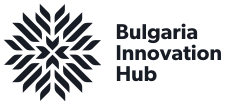How does BIH support Bulgarian female entrepreneurs: Q&A with Lidiya Dervisheva and Maya Zlatanova
In May we welcomed two Bulgarian female founders into the USA - Maya Zlatanova and Iva Gumnishka. They had the opportunity to meet up with potential clients, investors, and partners in the US. This experience will help them to scale their businesses globally and get to know the local ecosystem. Iva and Maya’s trip was organized by two of our mentors Lidiya Dervisheva and Austin Arensberg with the support of The German Marshall Fund. Previously we shared with you the experiences of Iva and Austin during the initiative. To discover more about the program and its benefits, we sat down with Lidiya and Maya.
Q: Why did you decide to invite Iva and Maya to the program?
Lidiya: Together with Austin and Pavlina, we put together a list through our network and through referrals of all Bulgarian female founders and co-founders. In the end, it turned out that the list wasn’t very long - definitely less than 30 people. And that was another obvious reason that something needs to change.
We went through the list of all Bulgarian female founders around Europe and shortlisted only the female founders who are currently based in Bulgaria. The logic was that the founders based in London or Berlin, for example, have access to more investors and more financing opportunities than those in Eastern Europe.
That is how we chose Iva Gumnishka, from Humans in the Loop, and Maya Zlatanova, from Find Me Cure. The stage where Maya and Iva were at that moment was also a good fit for the program. Their startups had initial revenue, they have found their early product-market fit, and they were on the path to raising their next round.
Q: What is your most memorable moment from the fellowship program?
Maya: For me, the most unforgettable memories were my conversations with my fellow female entrepreneur Iva. We had the time to exchange know-how and just emphasize on all challenges that we go through while building our businesses.
Another good event was the Taco Tuesday party especially hosted for us and at the same time bringing all sorts of people who work in the region, either building companies or investing in such. It was nice and helpful to have just normal conversations with everyone and discuss trends and challenges. One thing that was eye opening was how news first spread there and maybe a week or even two later they are in Europe.
Q: As a female founder, what is the biggest challenge for you when building your company?
Lidiya: The biggest challenge for female founders that we want to change through the program is the lack of success stories and role models. Without seeing how people succeeded and what they did to get where they are now, it is hard to believe that you can become the next success story.
Maya: It’s not about being female or male for me. It's about what network you have and who you know and who knows you. Running a business from Bulgaria might be a great plus due to the access to talent. At the same time, if your customers are outside of Bulgaria it’s hard to keep connected and engage with them (starting with cultural specifics, day-to-day differences etc.). Same with investors, if you want to get support from investors abroad, you’d better find a way to get to know them and stay connected.
Q: How do such fellowship initiatives help the founders and the community in the Bulgarian ecosystem?
Lidiya: Austin and I started the initiative with the aim to help Bulgarian female founders because they are very underrepresented. Our goal was to bring female founders from the country to Silicon Valley and show them how the fundraising process works abroad and how the founders can get access to top investors.
Additionally, we wanted the participants in the program to bring the knowledge, the know-how, and the learnings back to the Bulgarian ecosystem, and share it with other founders.
Maya: Such initiatives help you to grow a strong network. Connecting people who can support each other is very important and builds a great relationship between them.
By organizing more meetups dedicated to female entrepreneurs, we raise BIG questions like: motherhood and entrepreneurship, pluses and minuses of female leaders, etc. At the same time, if we try to not differentiate female from male entrepreneurs, will have a positive impact too because at the end of the day no matter the gender we all want to build scalable and impactful businesses.
